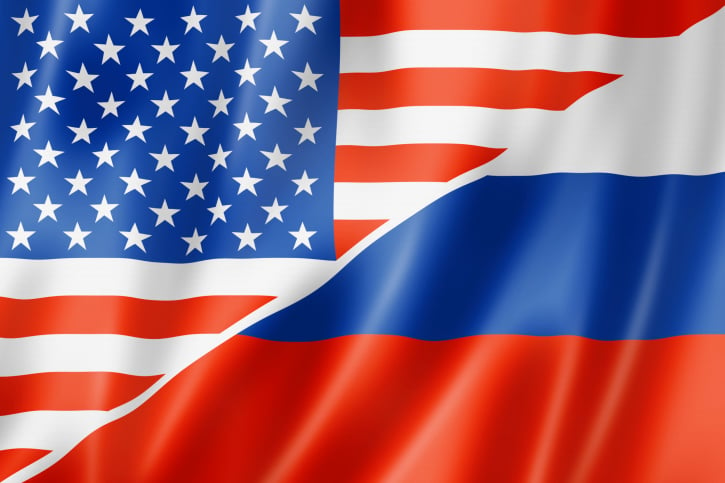Economy
Which Major U.S. Firms Are at Risk With High Exposure to Russia?
Published:
Last Updated:

According to the U.S. Chamber of Commerce, U.S. businesses have about $10 billion invested in Russia, mostly in mining, manufacturing and banking. That number is probably too low, and in any event had been poised to rise as some major players are ramping up spending in the country. Here are some companies with substantial assets in Russia.
Ford Motor Co. (NYSE: F) sold 105,000 vehicles in Russia in 2013 and claims a market share of 3.8% of the total of 2.8 million vehicles sold in the country. Russia is Europe’s second-largest market for new vehicles, and Ford expects Russia to become the largest over the next several years. The company has a 50/50 joint venture with Russian firm Sollers that operates three manufacturing plants in the country and plans to launch a new engine plant next year. Ford is closing plants in the United Kingdom and Belgium and moving some production to Russia.
General Motors Co. (NYSE: GM) sold 258,000 vehicles in Russia last year, a market share of 9.1%. The company has a plant near St. Petersburg that has a current manufacturing capacity of 98,000 cars, but it is scheduled to be expanded to a capacity of 230,000 cars by 2015. GM was forced to shut its Russian plant for a full month last summer, instead of a scheduled two weeks, due to weak sales in the Russian auto market.
Exxon Mobil Corp. (NYSE: XOM) formed an alliance with Russia’s state-controlled oil giant Rosneft in 2011 to develop the potentially huge and totally untapped reserves on Russia’s Arctic Shelf and in Western Siberia’s shale oil deposits. The deal could eventually be worth as much as $500 billion. Part of the deal included exploration work in the Black Sea, but the big prize is the Arctic. Exxon was able to get Russian President Vladimir Putin to cancel taxes on oil exports from the Arctic for up to 15 years in exchange for its investments in the country.
Citigroup Inc. (NYSE: C) offers traditional banking and credit card services at 172 branches in its Europe/Middle East/Africa regional consumer banking operation, of which Poland, Russia and the UAE are the largest. The bank also holds $10.3 billion in aggregate assets in Russia, making it the bank’s 10-largest emerging market holding. The bulk of the assets comprises $6.5 billion in loans held by the Institutional Clients Group and $1.7 billion in loans held by the Global Consumer Banking group.
J.P. Morgan Chase & Co. (NYSE: JPM) reported that its exposure to Russia totaled $4.7 billion in 2013, of which $4.7 billion is in loans and $700 million is in trading and investing.
In his remarks Sunday about the Russian incursion into Crimea, U.S. Secretary of State John Kerry said, “American businesses may well want to start thinking about whether they want to do business with a country that behaves like this.” For its part, a U.S. Chamber of Commerce spokesman said the group opposes any unilateral U.S. sanctions on Russia and suggests that Europe and European businesses should take the lead. Presumably, the United States would follow that lead.
Take the quiz below to get matched with a financial advisor today.
Each advisor has been vetted by SmartAsset and is held to a fiduciary standard to act in your best interests.
Here’s how it works:
1. Answer SmartAsset advisor match quiz
2. Review your pre-screened matches at your leisure. Check out the
advisors’ profiles.
3. Speak with advisors at no cost to you. Have an introductory call on the phone or introduction in person and choose whom to work with in the future
Take the retirement quiz right here.
Thank you for reading! Have some feedback for us?
Contact the 24/7 Wall St. editorial team.